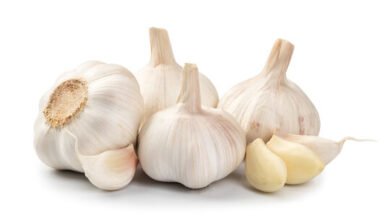10 Surprising Foods That Boost Your Child’s Brain Development
Brain Development for kids Discover surprising superfoods that enhance memory, focus, and cognitive development in growing children naturally.

Every parent wants to give their child the best start in life, and brain development plays a crucial role in their growth and learning. While genetics and education are important, nutrition is a powerful factor that can significantly enhance cognitive function, memory, and focus. Many parents know about common Brain Development foods like fish and nuts, but there are several surprising options that can be even more effective in supporting your child’s Brain Development.
From vibrant berries to everyday pantry staples, certain foods are packed with essential nutrients like omega-3 fatty acids, antioxidants, and vitamins that fuel brain health. These foods not only improve concentration and problem-solving skills but also protect against cognitive decline. We’ll explore 10 unexpected yet powerful foods that can help sharpen your child’s mind, boost their academic performance, and set them up for long-term success. These nutritional powerhouses and discover how they can make a real difference in your child’s brain development.
10 Surprising Foods That Boost Your Child’s Brain Development
Blueberries
Blueberries are often called “brain berries” because of their high antioxidant content. These tiny fruits are rich in flavonoids, which improve memory and cognitive function by protecting brain cells from oxidative stress. Studies suggest that children who consume blueberries regularly show better concentration and problem-solving skills. The anthocyanins in blueberries enhance communication between brain cells, leading to improved learning abilities. You can easily add them to smoothies, yogurt, or oatmeal for a delicious and brain-boosting snack.
Eggs
Eggs are a fantastic source of choline, a nutrient vital for brain development. Choline helps produce acetylcholine, a neurotransmitter that regulates memory and mood. The protein and B vitamins in eggs also support sustained energy levels, keeping kids alert throughout the day. Including eggs in your child’s breakfast can improve focus and information retention. Whether scrambled, boiled, or in an omelet, eggs are a versatile and essential brain food.
Greek Yogurt
Greek yogurt is packed with probiotics, which promote a healthy gut-brain connection. A balanced gut microbiome is linked to reduced anxiety and better cognitive performance. Additionally, yogurt contains iodine, a mineral crucial for brain development and preventing learning disabilities. The protein and healthy fats in Greek yogurt also help stabilize blood sugar levels, preventing energy crashes that can affect concentration. Serve it with honey and nuts for a tasty, brain-boosting treat.
Dark Leafy Greens
Spinach, kale, and Swiss chard are excellent sources of folate, a B-vitamin that aids in brain development and neurotransmitter production. These greens also contain lutein, which enhances visual processing and learning efficiency. Children who consume leafy greens regularly tend to have better memory retention and problem-solving skills. Sneak them into smoothies, soups, or pasta sauces for a nutrient-packed meal.
Pumpkin Seeds
Pumpkin seeds are loaded with magnesium, a mineral that enhances learning and memory. They also contain zinc, which supports nerve signaling and cognitive function. These tiny seeds are rich in iron, preventing brain fog and fatigue in children. A handful of pumpkin seeds as a snack or sprinkled over salads can significantly improve mental clarity and focus. Their omega-3 Fatty acid also contribute to brain cell repair and growth.
Oranges
Oranges are rich in vitamin C, a powerful antioxidant that protects brain cells from damage. This vitamin also aids in the production of neurotransmitters like dopamine, which enhances focus and motivation. A glass of fresh orange juice or orange slices as a snack can help improve mental alertness and cognitive performance in children.
Turmeric
Turmeric contains curcumin, a compound known for its anti-inflammatory and antioxidant properties. It boosts BDNF (brain-derived neurotrophic factor), a protein that supports brain cell growth and learning. Adding a pinch of turmeric to soups, curries, or warm milk can enhance memory and protect against cognitive decline.
Nuts and Seeds
Almonds, walnuts, and flaxseeds are packed with omega-3 fatty acids, vitamin E, and antioxidants that support brain health. These nutrients enhance memory, focus, and overall cognitive function. A small handful of mixed nuts as a snack can provide long-lasting mental energy for your child.
Oats
Oats are a great source of fiber, which stabilizes blood sugar levels and keeps the brain energized. They also contain B vitamins, essential for cognitive development and mental clarity. A bowl of oatmeal for breakfast ensures sustained focus and better academic performance.
Dark Chocolate
Dark chocolate (70% cocoa or higher) contains flavonoids, caffeine, and antioxidants that improve blood flow to the brain, enhancing memory and reaction time. A small piece of dark chocolate can be a delicious and effective brain-boosting treat for kids.
Future Aspects of 10 Surprising Foods
Personalized Nutrition for Cognitive Growth
Future research may enable tailored brain-boosting diets based on a child’s genetics, gut microbiome, and learning patterns. Advances in nutrigenomics could help identify which specific brain foods work best for individual children, optimizing cognitive development through customized meal plans.
Fortified and Bioengineered Superfoods
Scientists are working on nutrient-enhanced versions of common brain foods. Imagine blueberries with higher anthocyanin content or eggs enriched with additional omega-3s. Biofortification and CRISPR gene-editing could make these foods even more powerful for brain development.
Smart Packaging and Brain-Boosting Meal Kits
The future may bring AI-powered meal kits that suggest brain-healthy recipes based on a child’s age, activity level, and nutritional needs. Smart labels could track nutrient intake and remind parents when to restock key brain foods like walnuts or Greek yogurt.
Brain Food Supplements with Targeted Benefits
While whole foods are ideal, future supplements derived from these 10 foods may offer concentrated cognitive benefits. Think chewable omega-3 gummies from pumpkin seeds or dark chocolate extract capsules for memory support—making brain nutrition easier for picky eaters.
School Programs Integrating Brain Foods
Educational systems may adopt brain-food meal programs, ensuring children get these nutrients during school hours. Partnerships between nutritionists and schools could lead to brain-boosting cafeteria menus featuring eggs, berries, and leafy greens daily.
Long-Term Studies on Cognitive Outcomes
More longitudinal research will track children who consume these foods regularly, measuring long-term impacts on IQ, memory, and academic success. Future findings could solidify the link between early nutrition and lifelong brain performance.
Sustainable and Accessible Brain Foods
As demand grows, climate-resistant farming of brain-boosting foods (like drought-tolerant walnuts or urban-grown leafy greens) will make them more affordable and eco-friendly, ensuring all children benefit regardless of socioeconomic status.
Tech-Enhanced Tracking of Brain Food Effects
Wearable devices and apps may soon monitor cognitive improvements from these foods, tracking focus, memory retention, and mood changes in real time helping parents adjust diets for maximum brain benefits.
Combining Brain Foods with Cognitive Training
Future approaches may pair these foods with mental exercises, creating optimized learning routines. For example, eating blueberries before memory games or eggs before problem-solving tasks to enhance neural connections.
Read More: DIY Anti-Aging Face Masks That Actually Work
Conclusion
Supporting your child’s brain development through nutrition is one of the most impactful things you can do as a parent. By incorporating these 10 surprising yet powerful foods into their diet, you’re not just feeding their bodies – you’re fueling their minds for better focus, memory, and cognitive performance. Remember, consistency is key; making these brain-boosting foods a regular part of their meals can lead to noticeable improvements in learning and Brain Development.
While no single food is a magic solution, the combination of these nutrient-rich options creates a solid foundation for optimal brain development. From antioxidant-packed blueberries to omega-3 rich walnuts, each food brings unique benefits that work together to enhance neural connections and protect growing brains. Start introducing these foods today in creative, kid-friendly ways, and watch as your child Brain Development sharper thinking skills and a stronger capacity for learning that will benefit them for years to come.
FAQs
How quickly will I see improvements in my child’s focus after adding these brain foods?
While every child is different, many parents notice subtle improvements in concentration within 2-3 weeks of consistently including these foods in meals.
Can these foods help children with ADHD or learning difficulties?
Yes, foods rich in omega-3s, antioxidants, and protein can support brain function, though they should complement (not replace) professional treatment plans.
Are organic versions of these foods significantly better for brain development?
While organic options reduce pesticide exposure, conventional versions still provide excellent nutritional benefits if organic isn’t accessible or affordable.
What’s the best way to serve these foods to toddlers who are picky eaters?
Try blending spinach into smoothies, making yogurt popsicles, or creating fun shapes with egg omelets to make brain foods more appealing.
How many of these Brain Development foods should my child eat daily?
Aim for 2-3 servings from different categories (like berries + eggs + nuts) each day for balanced brain nutrition.











